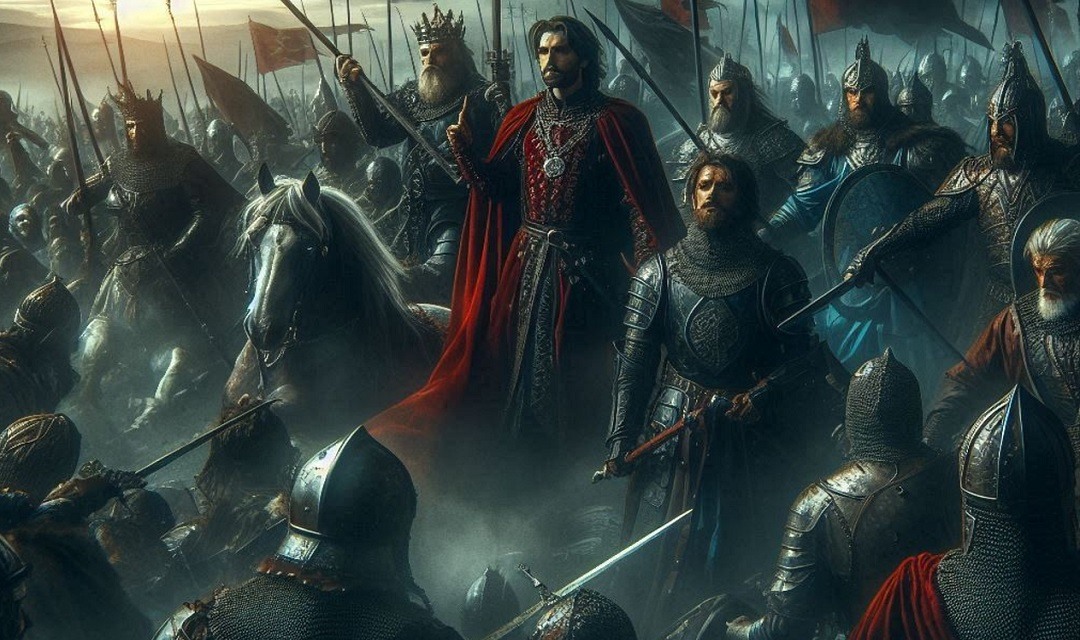This article first appeared in the From the Editor column of the Christian Research Journal, volume 29, number 3 (2006). For further information about the Christian Research Journal, click here.
“The Christian faith has done more harm than good to the human race.” When critics of Christianity make such a claim, they typically will cite the Crusades,1 along with the Inquisition, as supporting evidence. Muslims, atheists, and New Age believers alike, among others, make full use of the Crusades in their efforts to dismiss Christian truth claims.
In this column I will briefly consider (in concurrence with this issue’s cover article by Daniel Hoffman, p.12) the claims Muslims make about the Crusades. In next issue’s column I will look in greater depth at the way holy wars in general are used by social and religious liberals to discredit all “fundamentalist” approaches to religion, including evangelical Christianity.
Many Muslims and Muslim sympathizers view Islamic jihad or “holy war”2 against the West as justifiable self-defense. They believe that Western Christians launched holy war against Muslims first (in the form of the Crusades), and that they continue to wage war against Muslims to the present day.3
The 2005 movie Kingdom of Heaven, currently available on DVD and premiering on the premium movie channel Cinemax as I write, promotes such a view of the Crusades. On PBS’s Religion and Ethics Newsweekly, film reviewer Mary Alice Williams observed that “in it, the Muslims are the good guys—noble and proud. The Christians are the bad guys—irredeemably avaricious and blood-thirsty but for three whom history has recorded.”4
As Daniel Hoffman acknowledges, the Crusades ultimately fell seriously short of accepted Christian standards for a just war, despite the fact that they were undertaken for largely noble reasons. These dark annals of church history are fair game should Hollywood choose to shine a light on them. It is not fair game, however, to distort the facts, capitalizing on the public’s ignorance of history, all for the purpose of striking a low blow at Christianity. Hofmann convincingly demonstrates that this is exactly what Kingdom of Heaven does.
Andrew G. Bostom, author of The Legacy of Jihad (Prometheus, 2005), puts the matter into historical perspective:
From its earliest inception, through the present,jihad has been central to the thought and writings of prominent Muslim theologians and jurists. The precepts and regulations elucidated in the 7th through 9th centuries are immutable in the Muslim theological-juridical system, and they have remained essentially unchallenged by the majority of contemporary Muslims. The jihad is intrinsic to the sacred Muslim texts, including the divine Qur’anic revelation itself, whereas the Crusades were circumscribed historical events subjected to (ongoing and meaningful) criticism by Christians themselves. Unlike the espousal of jihad in the Qur’an, the constituent texts of Christianity, the Old and New Testaments of the Bible, do not contain a form fruste [sic] institutionalization of the Crusades. The Bible sanctions the Israelites’ conquest of Canaan, a limited domain; it does not sanction a permanent war to submit all the nations of humanity to a uniform code of religious law….The Crusades as an historical phenomenon were a reaction to events resulting from over 450 years of previous jihad campaigns.5
The fact that the New Testament in particular never enjoins a holy war needs to be considered much more carefully than it often is. This we shall do in the next From the Editor.
— Elliot Miller
NOTES
- The Crusades were military expeditions that were undertaken by European Christians in the eleventh through thirteenth centuries to recover the Holy Land from the Muslims.
- This definition of jihad is disputed by some Muslims (see, e.g., http://www.submission.org/muhammed/ jihad.html), and it is true that the term can also refer to a nonphysical struggle against evil, but the use of jihad to mean literal warfare is firmly established in both historic and contemporary Islam. (See Douglas E. Streusand, “What Does Jihad Mean?” Middle East Quarterly, September 1997, http://www.ict.org.il/ articles/jihad.htm.)
- See, e.g., A. Aly, “Holy War (Jihad),” http:// home.att.net/~a.f.aly/jihad.htm.
- Mary Alice Williams, “Film Review: Kingdom of Heaven,” Religion and Ethics Newsweekly, episode no. 836, PBS, May 6, 2005, http://www.pbs.org/wnet/ religionandethics/week836/review.html.
- Andrew G. Bostom, “Jihad Begot the Crusades (part 1),” The American Thinker, May 4, 2005, http://www.americanthinker.com/articles.php?article_id=4467.









